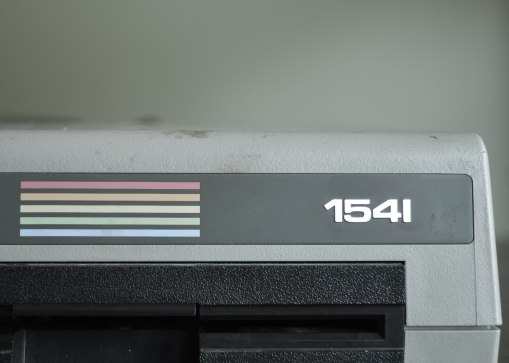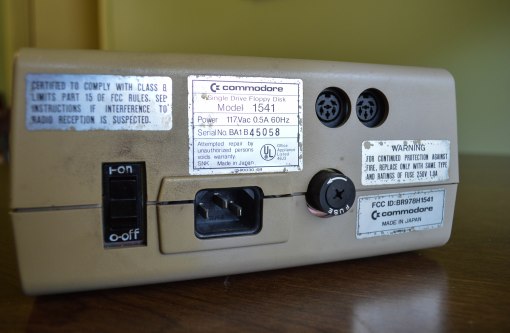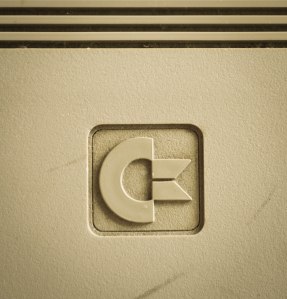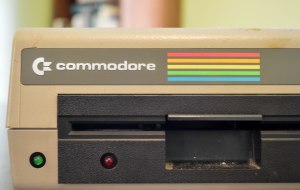
A family friend, then twenty-three-years old, finds she has the Parkinson’s gene. She calls me, and is upset, and asks me what it means. I have no idea at the time what to say to her or how to say it to make her feel better. The following is our conversation that day, describing what it is like to find out at twenty-three that you are genetically predisposed to develop the devastating disease, Parkinson’s. Lee found out after testing with 23andme genetic testing company. (This story is a re-post from Allvoices, from last year. Lee, of course, is not her real name).
I’VE GOT THE PARKINSON’S GENE!
I am Italian. I really am Italian!
You kiddin’? No one doubted it but you. I mean look at you there’s no doubt.
Born in Jersey, big brown eyes, gorgeous thick layers of dark hair, and perfect skin, Lee’s mother was adopted, and she knew little of her origin other than she came from Italy as a small girl.
After all the laughter and chit-chat over the phone with my daughter about the fun things, a pause.
Mom, she says she’s at risk for Parkinson’s.
I’ll let you talk to Mom.
I’ve got the Parkinson gene.
I held the phone a second. Blindsided by this one. I fumbled out a sentence about how she had sixty years before she worried about Parkinson’s, and how either stem cell or gene therapy would cure it before then. I wanted to say something soothing, something wise – something her mother might have said – it came out awkward. No one I knew had had Parkinson’s.
Lee’s going to be marrying into our family, she’s twenty-three. After I took my DNA test at 23andme she wanted to take one, too. She said she wanted to have kids, and she thought she should have them early because she said her family didn’t live long. Odd, for a young woman to think that way I thought at the time; I would never have, but then I’m goal-less. She isn’t.
For Lee it wasn’t a simple decision that she was making as a very young woman. She was on the fast track with a full scholarship working towards a degree in chemical engineering. She talked about how she’d love to get into MIT. She’d been accepted to several choice colleges with scholarships.
We forgot about Parkinson’s for a while then she sent me an email.
- >>>Are there any really early symptoms of Parkinson’s? Ones that develop in your 20s? I’ve done a little research but its very unclear.
- >>>I think maintenance of this disease is what you are after. You may never get the disease, but I think even if you don’t get full scale Parkinson’s it will affect you, and from what I’ve seen it starts early, it just isn’t recognized early, because the body is young enough to fight it off or maybe repair itself. What they are finding now is that diseases are not just all go or all stop, but are partially expressed or maybe even minimally expressed depending on (protein folding) (?).
- Also, glutamate is another part of the puzzle. There are toxins made in the brain that attack brain cells. Starting young is a must. This disease starts when you are born I am guessing, and progresses on an individual basis. I’m also guessing that if you figure out how it is personally geared to your body, you have a really good chance of pushing the disease further down the road, and not damaging your brain until either genetic cures or something comes from the SergeyBrin and Michael J. Fox research.
- >>>So theoretically if I have it, my brain is already deteriorating? That explains a lot haha.
- >>>I think that even if you don’t get Parkinson’s it will affect you slightly.
- >>>Oh, you think that my brain is deteriorating?
- >>>Oh, remove foot from mouth. Was never known for my diplomacy. Sorry.
Again, an awkward, unsatisfying answer for her, from me. So, I dug into Parkinson’s research, an unfamiliar area, to get answers for me and for her.
I was surprised to learn the positive things about Parkinson’s. It’s not your grandma’s disease anymore. In 2011, researchers are putting a new spin on an old syndrome.
- After testing many drugs, the team found that phenylbutyrate could activate DJ-1 and keep dopamine neurons from dying. Next, they put the drug in the drinking water of mice genetically programmed to get Parkinson’s disease as they aged.
- Aging mice receiving the drug were able to move normally, had no decline in mental function, and their brains did not accumulate the protein that causes Parkinson’s. By contrast, older animals that did not get the drug saw a steady decline in their ability to move as their brains were damaged by abnormal proteins. (Drug trials on Parkinson patients began in 2009)
- Source: Drug Stops Parkinson’s in Mice, Human Trials Begin – ResearchersPublished by:Steven J Hendrikson 17th Mar 2011 | bySteven J Hendriks
The next ten years truly may truly be revolutionary in brain medicine. Neural cells from the most complex organ on earth are now grown from skin cells where they can be stressed and observed. Never before have living brain cells been so accessible. It’s an exciting time if you are researching Parkinson’s disease.
As I researched further, I was surprised by what I thought was a cut-and-dried disease, narrow in scope, treated easily with L-dopa, and a disease that one out of two older people will get eventually. A disease that Michael J. Fox has, that’s relatively rare in younger adults, but he looks fine (?) He’s wickedly funny, and talented – except now, when I see his performance on the “Good Wife,” and then read about his trials with this disease, his performance is more than impressive.
I was surprised to find a website for “Young People with Parkinson’s SA” that has links for young women who want to get pregnant who have Parkinson’s, reassuring them that they can have children. Richelle from Australia says, “I am a 22 year old who was given the title of a Parkinson’s sufferer at the age of 17. I decided there wasn’t enough information out there for people my age…” Australia’s second leading disease is Parkinson’s, and many younger Australians have Parkinson’s, more so than in the US. http://youngparkinson.wordpress.com/
I was surprised to learn that Parkinson’s is a syndrome. Syndromes are almost impossible to pin down or diagnose or cure. I was surprised to learn the energy it takes to live with it, the many forms it takes, how some people have any where from level one to level five stage symptoms and these can vary from hour to hour, depending on medication. And onset can range from juvenile to octogenarian.
I was surprised to learn that Nebraska is the king of Parkinson’s in the US. The Nebraska Chapter of American Parkinson’s Disease Foundation, says, “The world’s highest prevalence of Parkinson’s Disease of any region is in Nebraska, U.S.A. with 329.3 people per 100,000 population.” “The Amish, Nebraska, the area around the ferromanganese plants in Breccia (Italy) have rates of 407 per 1000, and the Parsi of Mumbai (India), have the highest rates with 328.3 per 1000 Parkinson’s in the world.” Agricultural states, North and South Dakota, Minnesota, and Iowa known as the “Heartland Hub” have the highest rates for the US.
I was surprised to learn that southern Italy is home to Parkinson’s through the Contursi family. Jill Marjama-Lyons, MD, says “Perhaps the most famous family with inherited Parkinson’s disease is the Contursi family…in which sixty members of the same family over five generations were diagnosed with Parkinson’s disease.”
Most of all I was surprised to learn from Jill Marjama-Lyons’ and Mary Shomon’s book What Your Doctor May Not Tell You About Parkinson’s Disease. Holistic program for Optimal Wellness that early diagnosis is very important. The disease is around at least 10 years, sometimes twenty years in submarine mode before a diagnosis is made. “The dopamine cells that die off in Parkinson’s disease are in such a small area of the brain” that a CT scan or MRI “of the brain is not able to show these microscopic changes, and most patient’s with Parkinson’s disease will have normal scans.”
During this time, 60-80% of the dopamine neurons will be killed before motor symptoms become evident. This time of submerged stealth may be a time for intervention. The earlier it is diagnosed the better the management of it.
There may be neuroprotective agents that might minimize brain neuron loss until a cure is indeed found like taking large doses of COQ10, and antioxidants to clean up the free radicals, maybe coffee and exercise, and much more that can be found in the book What Your Doctor May Not Tell You About Parkinson’s Disease. Holistic Program for Optimal Wellness
So, if you’re in your twenties, like Lee, and any of the five Parkinson genes discovered so far are yours, they might just be medically “actionable” or correctable, in the sense that you are an individual, and your body may be healthier than others, you have time on your side. You can make better decisions based on what new things you know about Parkinson’s research. You can comb the Internet, read research, read books written for and by those who have gone before you. You can ” Save Your Own Life” as Marie Savard, MD says in her book to patients.
You can choose not to live near farmlands with the pesticides like rotenone , and you can choose what you eat, what you don’t eat (wheat), and take antioxidants to forestall motor loss in your brain. You can do Pilates and Yoga or dance, any exercise that actively engages your mind at the same time as your body, you can take yourself out of stressful situations, and manage anger, rather than suppress anger, and put good things into your life that naturally trigger dopamine instead of gobble it up and plug your brain with Lewy bodies.
Lee was born into an era that will be the fastest changes in medicine in over a century. She may be the first generation to never know what it is like to live with Parkinson’s disease. She has a lot of reasons to be optimistic. And, if I were to give one bit of advice to Lee, or anyone who has the same DNA results, I’d say read What Your Doctor May Not Tell You About Parkinson’s Disease. A Holistic Program for Optimal Wellness. It is a wealth of knowledge about Parkinson’s disease written by a physician who deeply cares for Parkinson’s patient’s lives.















